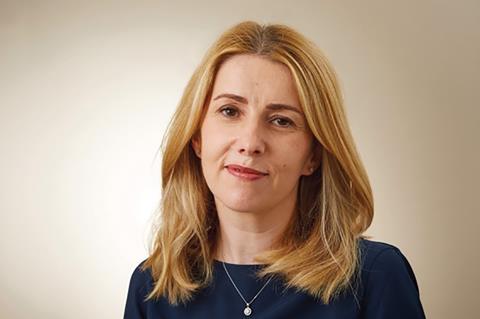An increase in efficiency at the Legal Ombudsman was abruptly halted by Covid-19. A backlog of cases, high staff turnover and an already rejected budget herald tough times ahead
There was a frustrating irony in the timing of the Legal Ombudsman’s latest annual report, published last week. It showed tentative signs that the organisation – so often dogged by delays and performance issues – was starting to improve. Satisfaction levels for both complainants and those complained about were a strikingly high 85%, while timeliness targets were met for all but the most complex cases.
But the report covered the year to 31 March 2020 – a week into the UK’s pandemic lockdown. What progress had been made was abruptly halted, and there is acknowledgement this will be as big a challenge as LeO has faced.
Elisabeth Davies (inset), who became chair of the Office for Legal Complaints at the height of the pandemic, says the ombudsman must be honest with users about the scale of problems this crisis will present.
The number of cases sitting in pre-assessment stage is 3,300, the backlog having increased by 1,400 since April. Given LeO accepted 6,425 cases for investigation in 2019/20, the potential for a logjam is clear (and significantly, unlike in the workloads of other ombudsmen, there has been no reduction in legal complaints since March). These cases will involve clients who have already taken first-tier complaints through their provider but have pursued the issue, presumably not satisfied with the response they got. Those people now face months not just of waiting for a decision from the ombudsman, but having their case even looked at by the watchdog.
Staff working from home, sometimes with limited access to technology and often with caring responsibilities, has taken its toll. Resolved cases are down to around 300 a month, down from 400-500 before the crisis.

There is also a problem with law firms: many have furloughed staff responsible for handling complaints, so these cases are often left dormant. Even when the country can return to a semblance of normality, the ombudsman is likely to face a flood of work it is barely equipped to deal with at the best of times.
‘I need to be honest and realistic about the impact of Covid-19,’ Davies told the Gazette. ‘There were performance issues prior to it – they have been exacerbated by the lockdown. This year it goes back to stabilisation. Whether it is realistic to start improving things this year I don’t know yet.’
All of which leaves the positive feeling from the 2019/20 report feeling rather redundant already. Two in every five cases were concluded with an agreed outcome, with the ombudsman making a final decision in 34% of cases. A total of 6,384 cases were resolved during the year, a rise of 3%.
LeO met its timeliness targets for low and medium complexity cases. For the least complex cases, 76% were concluded within 90 days and 97% concluded within 180 days. Targets were not met for high-complexity cases, with 20% still unresolved after a year.
Staff turnover continues to be a big problem, with 21% of employees leaving during 2019/20. Davies noted that this was not a characteristic of other ombudsman schemes and said it must be taken seriously if performance was to improve.
‘The attrition rate has been about changes to how people have been managed, changes to workload, loss of autonomy and the introduction of greater scrutiny,’ she said. ‘Staff have seen a huge amount of change and the bottom line is LeO has got some things wrong. Our people plan is addressing these issues.’
Davies’ other major issue is the budget. Just before her appointment, the service was forced to back down over plans to require the profession to pay an extra £2m a year for running costs. The 21% proposed increase was rejected by the Legal Services Board, and the OLC instead applied for an inflation-only rise.
Davies added: ‘In terms of good project and programme management with clear checks and scrutiny, I don’t think that was strong enough. It has been really important to recognise this process has not gone well… I have to be able to reassure the sector and the Ministry of Justice this is going to be done better in future.’
For now, the ombudsman must operate on its existing budget. Given the extraordinary situation faced this calendar year, it is about the only thing the organisation can be certain of right now.





































6 Readers' comments